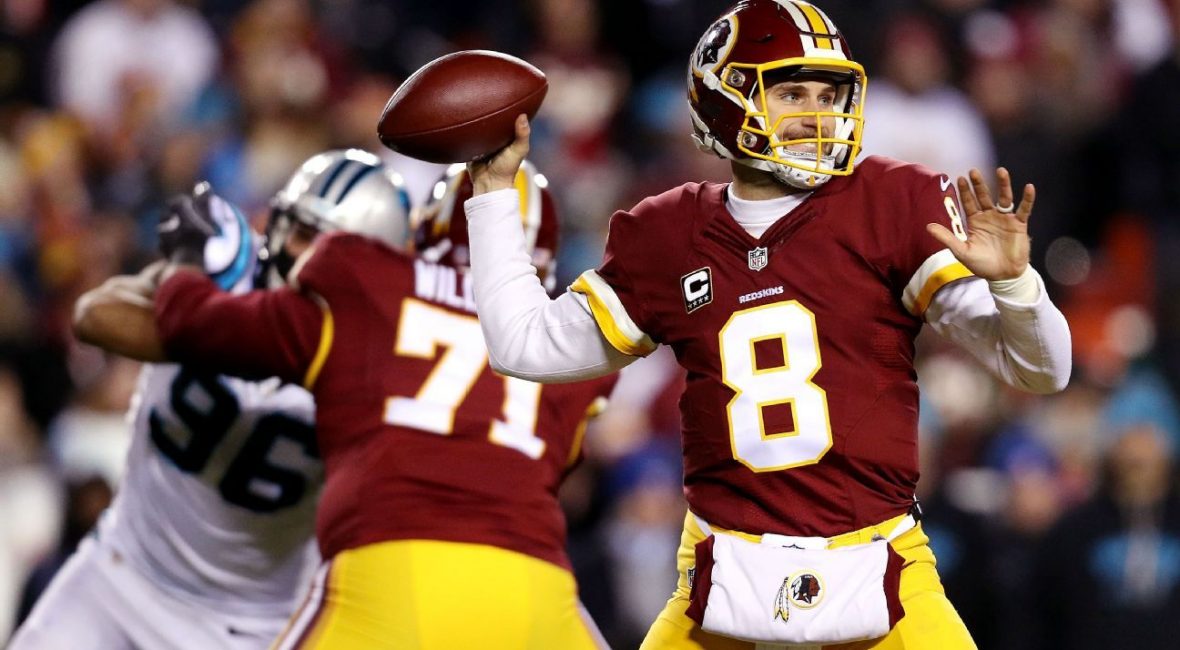The Kirk Cousins saga was briefly interrupted Monday when he and the Washington Redskins failed to strike a long-term deal. Barring the unlikely scenario of an in-season trade, the dance will resume in the offseason, with Cousins hitting free agency a strong possibility. Unless, of course, there’s another tag placed on him.
The lesson Washington must learn: If you truly want a player to re-sign, don’t wait until late in the game to make what would have been a strong offer a few months earlier. Cousins did debate countering but in the end he said he wanted to see how this season goes because of numerous changes to the organization.
Here are the four options in 2018 and, based on talking to numerous people, why they do or don’t make sense:
A third franchise tag: This would cost $34.5 million, which likely makes this an unrealistic scenario. The benefit, though, is that the Redskins would control his rights. If the Redskins feel there’s any shot at retaining him, they could tag him and negotiate without any future tag numbers impacting their talks, as has been the case. But if they don’t strike a deal, it’ll be a costly maneuver.
Or, they could tag and trade him. Cousins would have to work out a long-term contract with another team. But if there’s no trade — and no long-term deal — the Redskins would be stuck with a hefty bill that, if the salary cap rises by $10 million or so, would occupy nearly 20 percent of the space. That’s bad business. They also have 11 other key starters or backups in the last year of their deal, so if Cousins played a third year under the tag it would cost them the ability to retain multiple players.
The transition tag: This would enable Washington, which would owe Cousins $28.7 million under the transition tag, to match any offer from other teams. But there’s a problem: The offer could be too tough to match. The Redskins will have plenty of cap space — overthecap.com projects them at $54 million — so they could absorb a massive first-year hit on a new deal. However, as noted in the franchise-tag section, it would prohibit the Redskins from re-signing some of their other players. San Francisco, in need of a long-term starting quarterback, projects to have around $49 million in cap space. Those numbers don’t include possible carryover space from 2017 or players who could be released.
The 49ers — or another team — could make a heavily front-loaded deal with a player opt-out clause for the second year, much like the deal Alex Mack signed three years ago when under the transition tag with Cleveland. A year later, he opted out and bolted. If the Redskins matched such an offer, they would do so knowing Cousins could simply leave in 2019. It becomes an expensive one-year rental. However, if he opted out and signed elsewhere, the Redskins would receive a compensatory draft pick. If they fail to match the original offer, they wouldn’t receive compensation. If Cousins doesn’t get the offer he wants, or from the team he wants, he could always sign the tag and do this dance all over again in 2019.
Re-signing before free agency: This is tough to see happening. Real tough. Cousins said he wasn’t bothered by general manager Bruce Allen’s statement and knew it was coming, but suffice to say it went further than anticipated and did not sit well. If nothing else it stalled momentum from the previous two months that would have helped next offseason. Will that matter in February? Who knows. It could be viewed as a continuation of the perception of how things are handled in Washington. Regardless, how Allen continues to steer the franchise will matter. So will the relationship between Cousins and Gruden when it comes to how they mesh in the playcaller-QB dynamic. So will how the offense fares with two new prominent receivers. The season would have to go really well to the point both sides realize they’re better off together than apart in order to get something done. There are things both sides really like about the other; but it hasn’t been enough to work anything out to date. It’s not all on the Redskins, though. For them to pay the money it would take to sign Cousins pre-free agency, they’d have to see a whole lot this season — and the team had better reach the playoffs. The best guess here: He won’t sign at this point, opting to let them either use another tag or hit free agency. It’s not impossible for him to return, but a lot must break right.
Free agency: If neither tag is a great option and if signing before free agency would be considered a long shot (as of now), then this is the most likely (and desired) outcome. In this case, the Redskins would be bidding against multiple teams and, as you could imagine, there will be no hometown discount. Washington would not be out of the running, but the Redskins also wouldn’t be the favorite. Again, a lot depends on how the season unfolds. Cousins’ value would be set without the threat of a future tag. With good quarterbacks rarely hitting the open market, there likely would be multiple suitors. Yes, the 49ers would be one of them, but they won’t be alone. And it could reach numbers that make the dollar amounts bandied about in 2016 and ’17 seem like a bargain. If Cousins leaves in free agency, the Redskins’ parting gift would be a compensatory pick in 2019.






